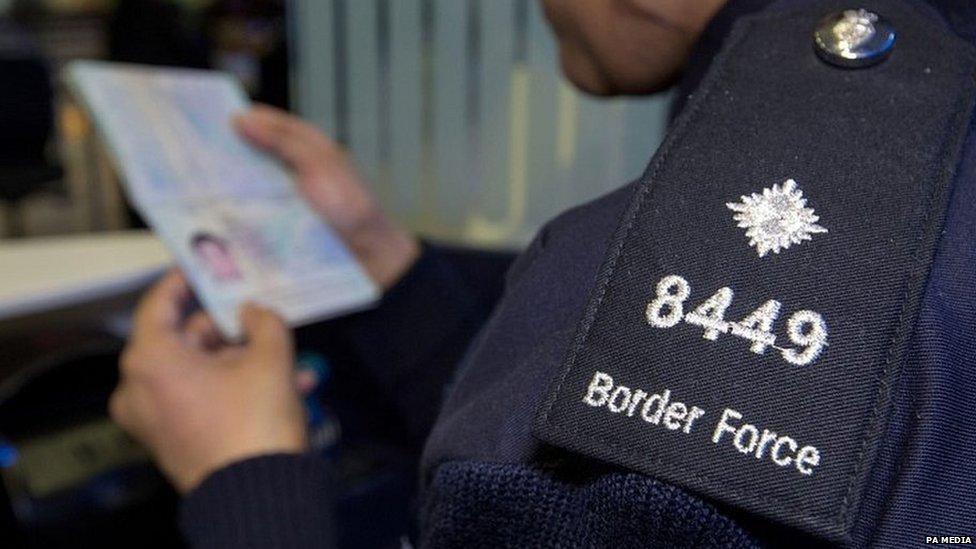Brexit: Post-EU immigration and farming rules become law
- Published

Two pieces of post-Brexit legislation preparing the UK for life outside EU institutions next year have become law.
The Immigration Bill, which received on Wednesday, ends freedom of movement on 31 December and replaces it with a new points-based system.
The Agriculture Bill paves the way for new support for farmers as the UK exits the bloc's Common Agricultural Policy.
Its passage through Parliament saw fierce arguments over food and animal welfare standards.
The government was forced to make a number of concessions to Conservative backbenchers and opposition parties concerned British farmers and food producers would lose out as a result of a future trade deal with the US.
Ministers have insisted that standards will not be diluted and that imports of chlorine-washed chicken and hormone-treated beef will remain banned once the UK is no longer bound by EU laws in eight-weeks time.
The UK left the EU on 31 January but remains bound by its rules until the end of the transition period on 31 December - when it will exit the EU's single market and customs union.
The UK has yet to agree its future trade and economic relationship with the bloc - with talks continuing.
'New opportunities'
All bills require the approval of the monarch before they become law, a process known as Royal Assent.
The Agriculture Bill - which was first introduced into the Commons in 2018 by Theresa May's government - and the Immigration Bill are now officially on the statute book.
The government has agreed that farmers will receive the same level of support as they currently do through the Common Agricultural Policy until 2024, while the current system of subsidies is gradually phased out.
A new funding mechanism will be introduced over a seven-year period up to 2027, with greater emphasis on environmental stewardship and rewards for improvements in air and water quality, soil health and bio-diversity.
Welcoming the bill becoming law, Environment Secretary George Eustice said its goal was to encourage sustainable farming practices while boosting the industry's productivity and competitiveness.
"We will support farmers in reducing their costs and improving their profitability, to help those who want to retire or leave the industry to do so with dignity, and to create new opportunities and support for new entrants coming in to the industry," he said.
'Historic day'
The Home Office said the Immigration Bill, which also met significant resistance in the Lords during its passage, would "restore faith" in the immigration system.
From 1 January, those seeking work in the UK will need to apply for permission in advance.
Visas will be given to those with sufficient points, based on their skill levels, English language abilities and whether their salary meets a required threshold.
Home Secretary Priti Patel said getting the bill onto the statute book was "a historic day in our new direction outside of the EU - controlling our own borders and delivering on the people's priorities".
The government has launched a scheme to make it quicker for scientists, academics, investors, entrepreneurs and health and care workers to come to the UK.
But unions are warning the UK is facing a crisis now, with foreign-born NHS workers vital to the UK's Covid fight leaving the country because their visas are expiring or due to delays and costs involved in renewing them.